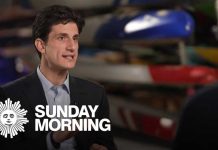
Mark Zuckerberg calls the student loan system “one of the biggest scams in America,” questioning if college truly prepares students for today’s job market while criticizing media elites for underestimating ordinary citizens.
Key Takeaways
- Zuckerberg warns of an impending “reckoning” for America’s student loan system, describing it as a major scam that saddles students with debt without adequately preparing them for modern jobs.
- He criticizes media elites for underestimating the intelligence of ordinary people and assuming they know better than their audience.
- Meta recently announced an end to its fact-checking practices, with Zuckerberg advocating that users should make their own choices about content.
- The Facebook founder warns tech companies against arrogance, stating that assuming superiority over users leads to failure and irrelevance.
- Zuckerberg emphasizes that a product’s success depends on its usefulness to real people, not industry acclaim or elite opinions.
Higher Education Under Fire
In a candid conversation with comedian Theo Von, Meta CEO Mark Zuckerberg didn’t hold back his criticism of America’s higher education system. The tech billionaire, who famously dropped out of Harvard to build Facebook, questioned whether college education truly prepares students for contemporary workforce demands. His comments come at a time when student loan debt in America has reached crisis levels, with millions of graduates struggling under the weight of educational debt that often takes decades to repay.
“I’m not sure that college is preparing people for, like, the jobs that they need to have today,” Zuckerberg stated bluntly. “There’s going to have to be a reckoning.”
Zuckerberg’s critique extends beyond just questioning the practical value of degrees. He suggests the entire system has evolved into something that traps young Americans in financial obligations without delivering adequate returns on their investment. This perspective aligns with growing concerns about whether the traditional four-year college path remains appropriate for everyone, especially as alternative career pathways and educational models continue to emerge in the digital economy.
Media Elites and Public Understanding
The Meta founder’s criticisms weren’t limited to education. He took aim at what he describes as media elitism and the tendency of information gatekeepers to underestimate the intelligence and decision-making capabilities of ordinary citizens. This criticism comes as Meta recently announced it would end certain fact-checking practices and lift speech restrictions across its platforms, a move aimed at promoting freer expression but one that has drawn significant criticism from groups concerned about misinformation.
“I’m just like, I’ve always been a person who really kind of believes that people understand—people are smarter than people think, and I think in general are able to make good decisions for their lives, and when they do things that like the media or whatever thinks don’t make sense; it’s generally because the media doesn’t understand their life, not because the people are stupid,” Zuckerberg explained.
Zuckerberg’s position reflects a growing divide between institutional media perspectives and public sentiment. He suggests that media elites often misinterpret or misrepresent public actions not because of misinformation but because they fundamentally misunderstand the everyday realities and priorities of regular people. This stance places him at odds with critics who argue that social media platforms have an obligation to combat false information.
🔥Can’t make this up. Zuckerberg discussed being CALLED A ROBOT …On Theo Von ..“ When people do things the media thinks don’t make sense it’s because the media doesn’t know their life and not because they are stupid” …Meanwhile he spent millions against Trump and helped censor… pic.twitter.com/oHs9puCDuB
— Johnny St.Pete (@JohnMcCloy) April 28, 2025
Warning Against Tech Arrogance
Perhaps most striking was Zuckerberg’s candid warning about arrogance within the technology sector. Drawing from his extensive experience building one of the world’s largest tech companies, he cautioned against the tendency of tech leaders to assume they know better than their users. This self-criticism stands out in an industry often criticized for its insularity and detachment from everyday concerns.
“Whenever we adopt the attitude of, ‘Oh, we must know better than them because we’re the ones building technology,’ that’s when you lose. If you have that attitude for long enough then you just, like, become a sh—y company, and you lose, and you lose, and you lose, and then you’re irrelevant,” Zuckerberg stated.
Zuckerberg emphasized that a product’s success ultimately depends on whether people find it useful and choose to incorporate it into their lives—not on industry accolades or approval from tech elites. This perspective speaks to a growing recognition within some tech circles that connection with user needs must remain central, even as companies pursue innovation. His comments suggest a more humble approach to technology development that acknowledges the wisdom of users rather than assuming developers always know best.









